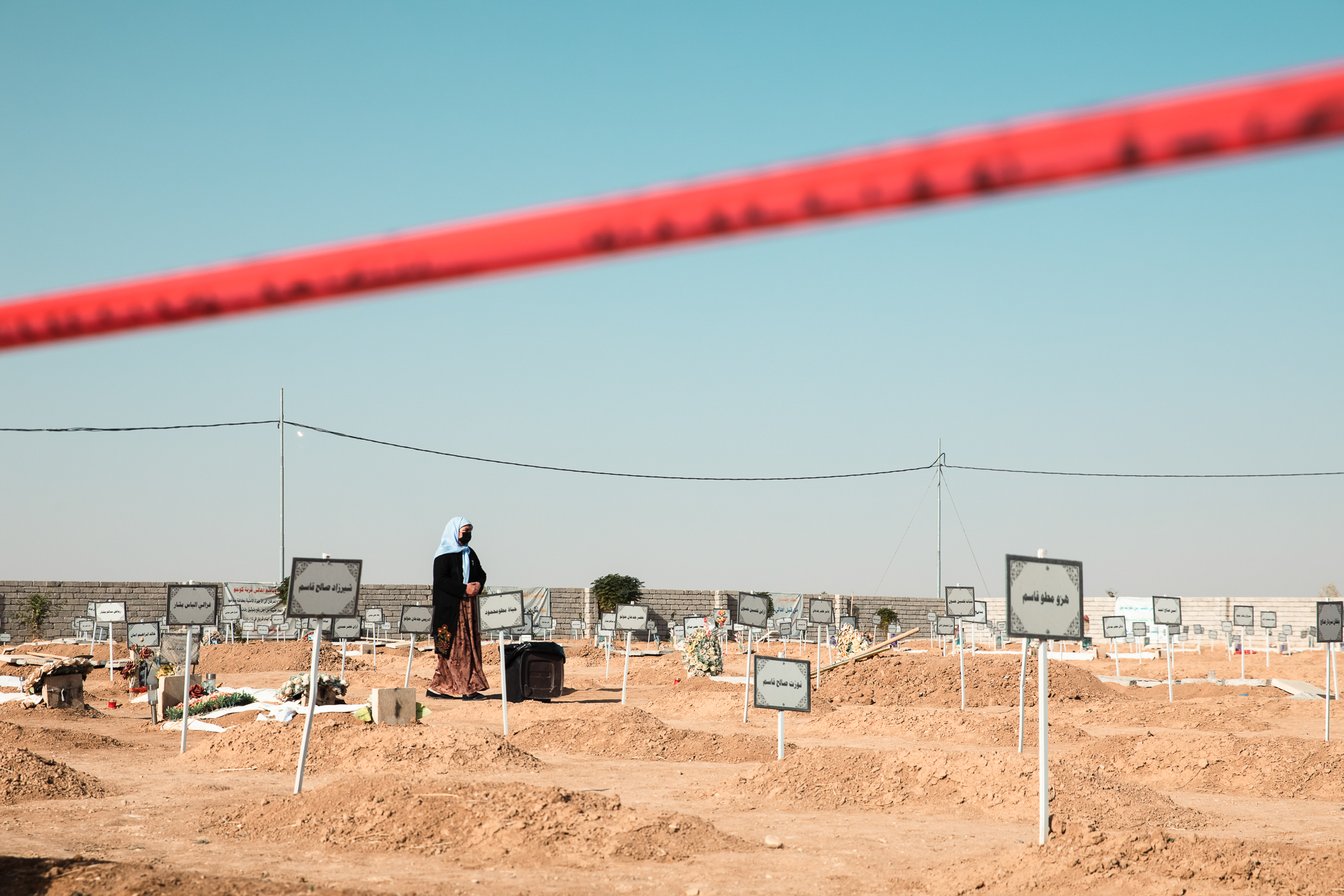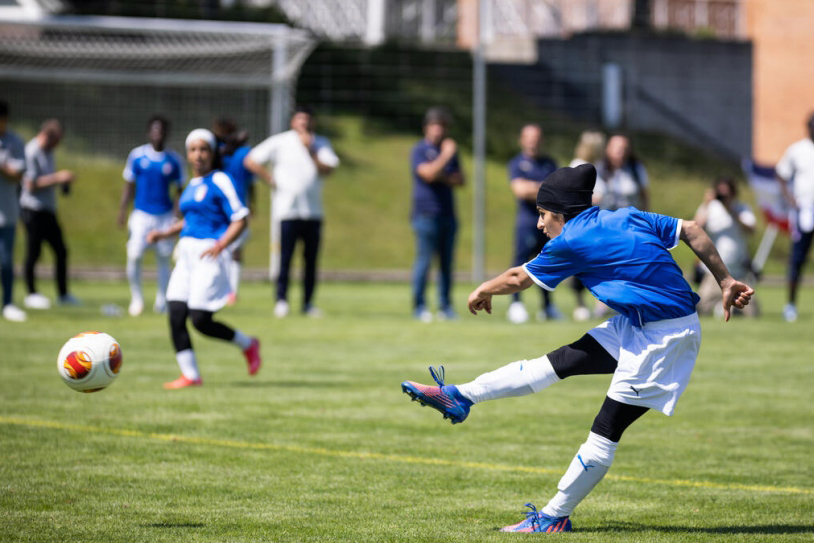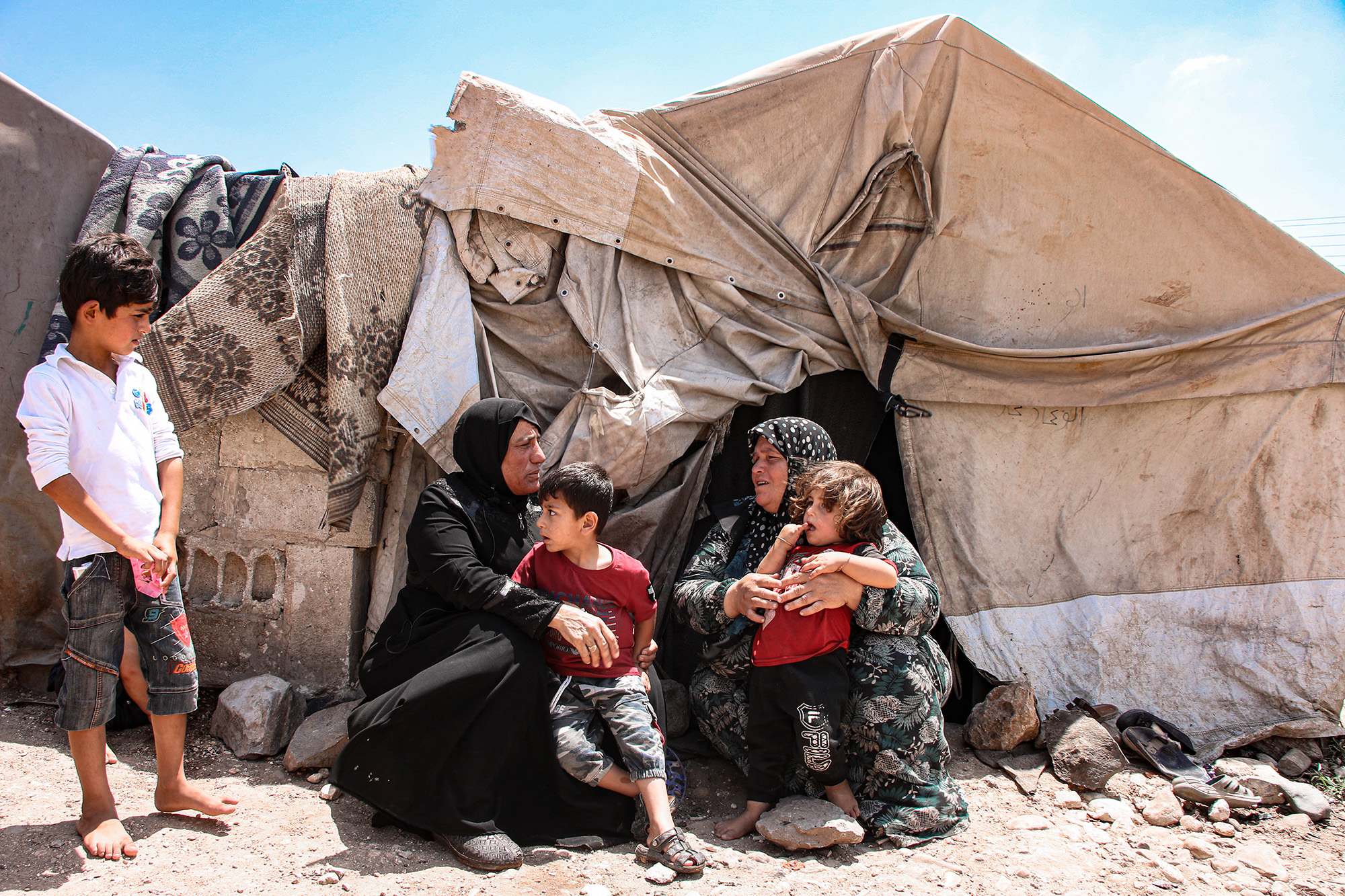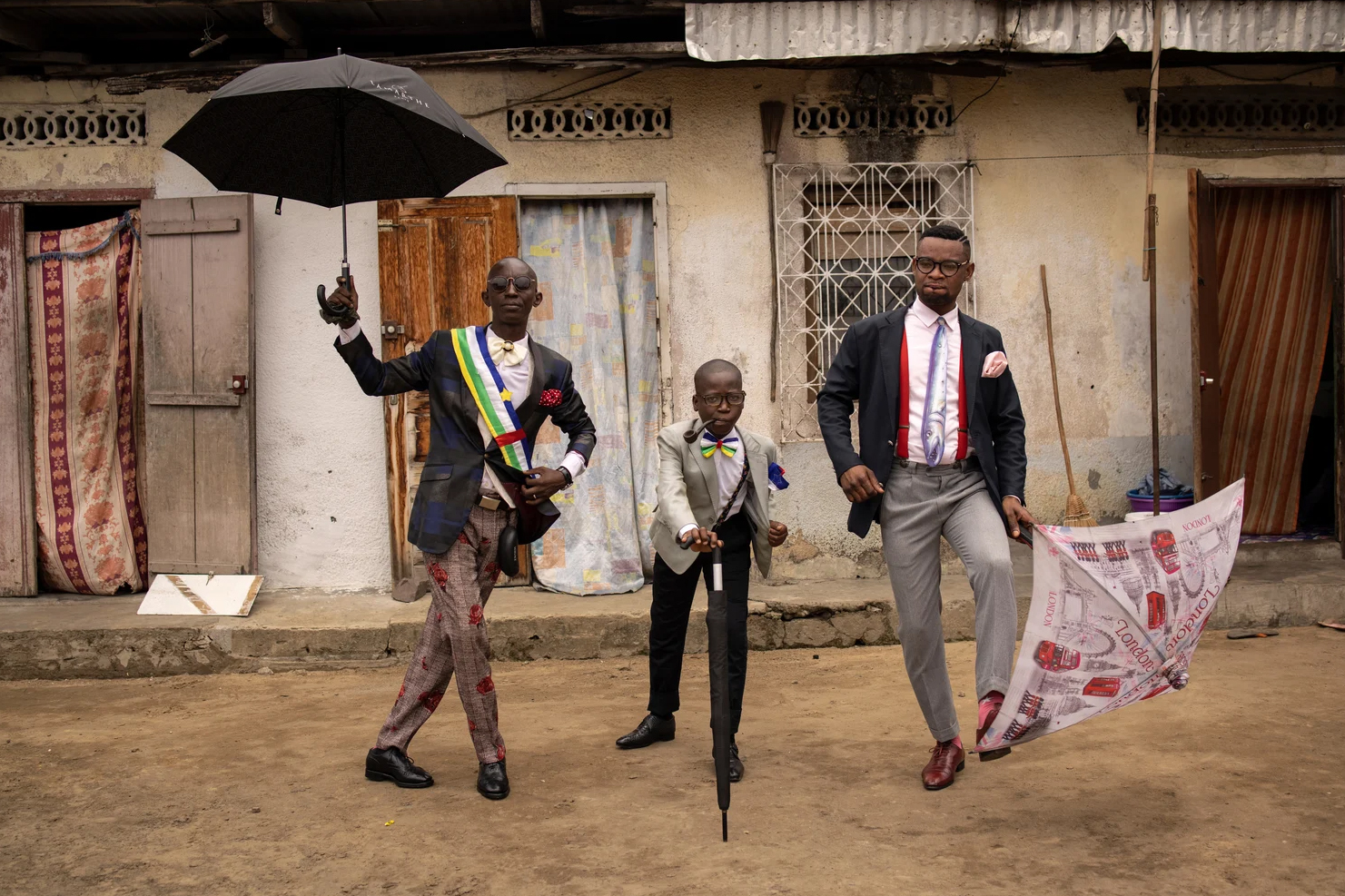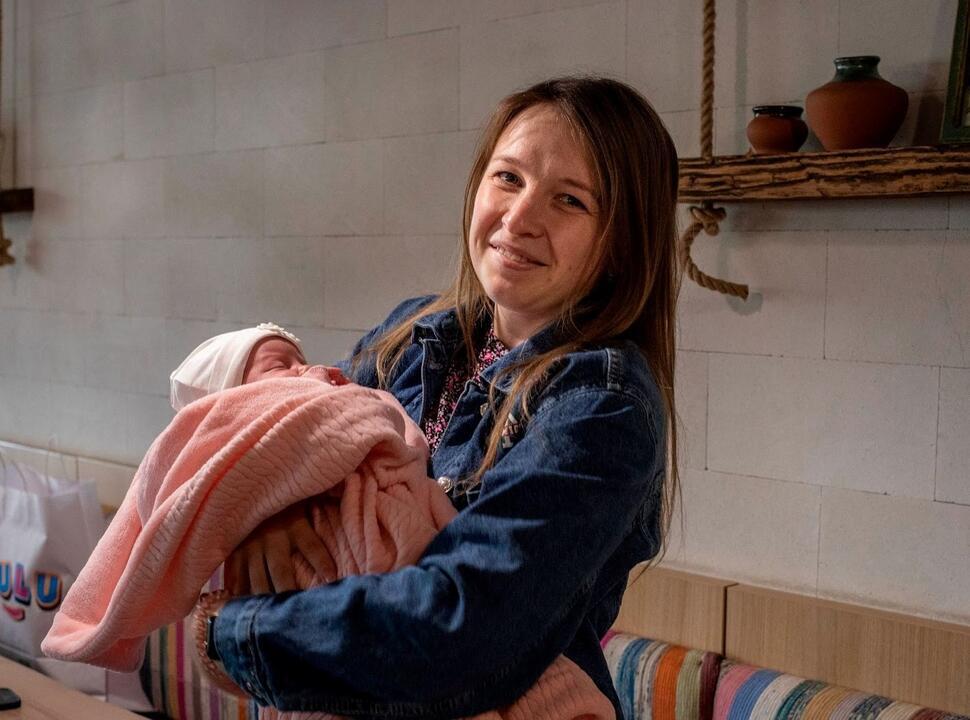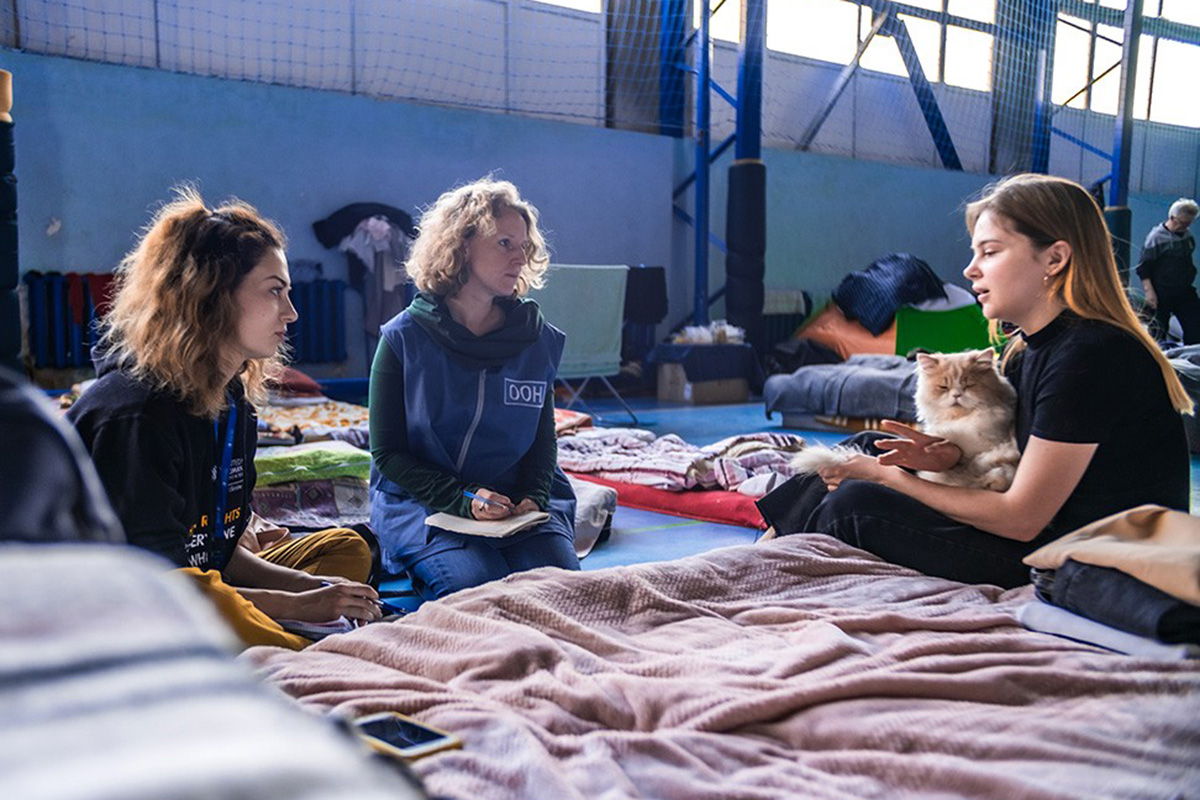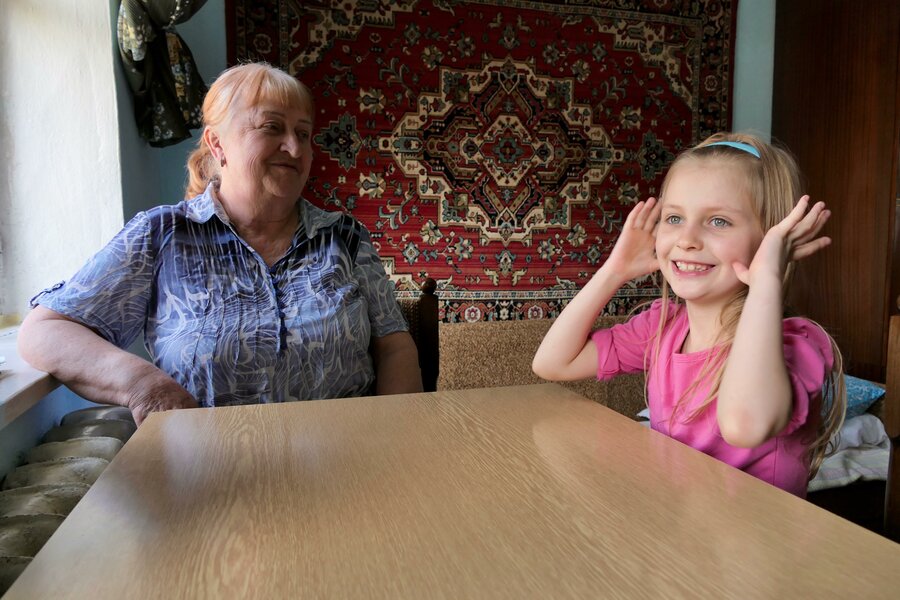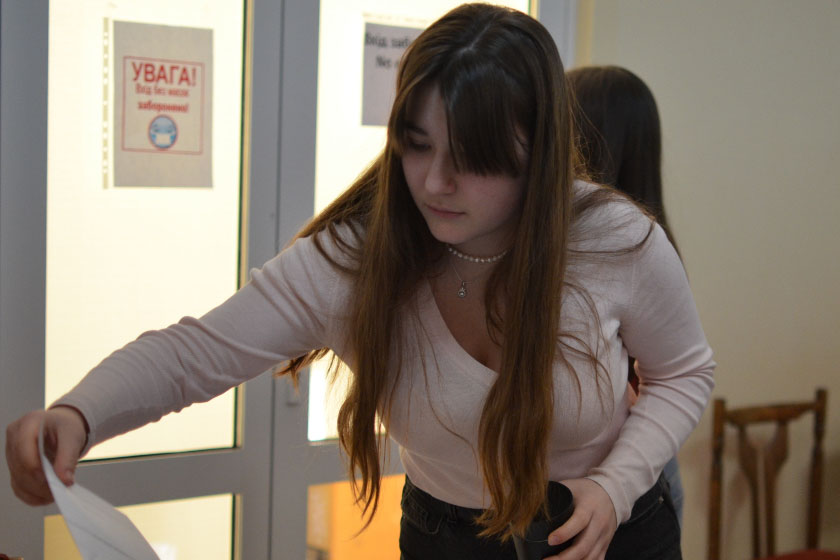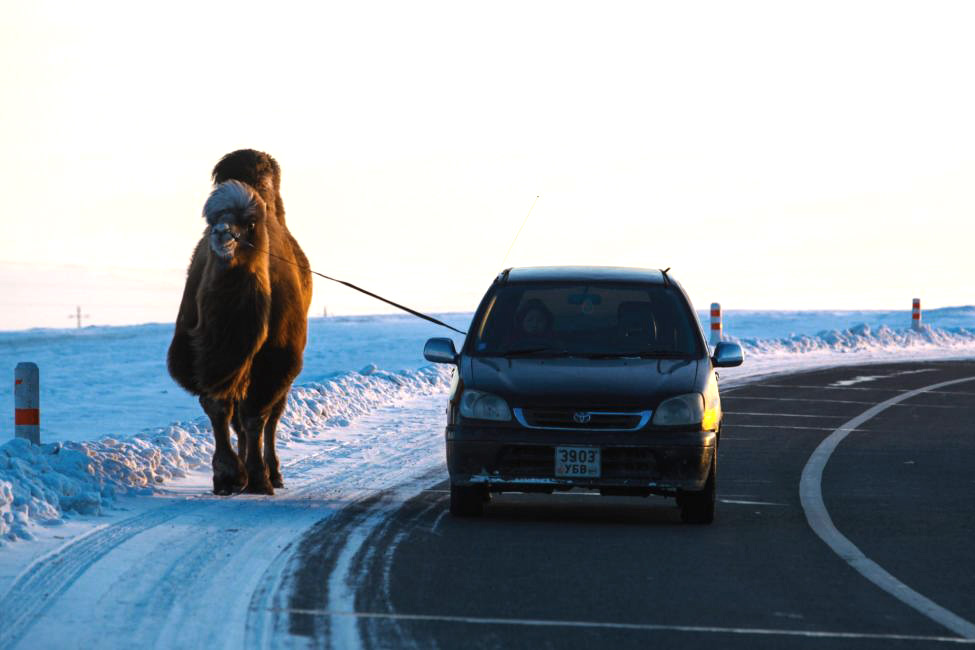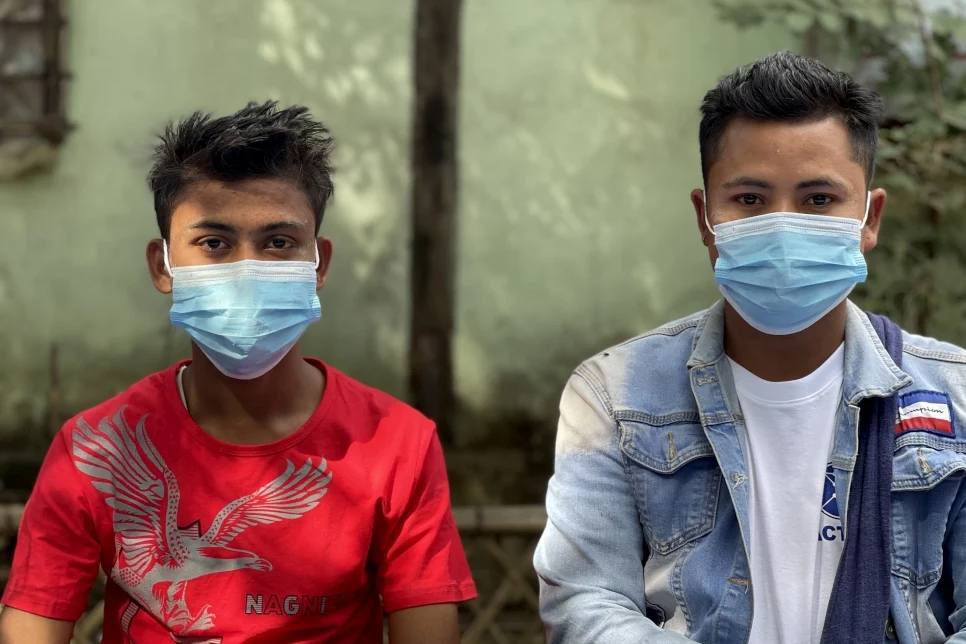The lives of survivors from the Yezidi community have been irreparably changed by unimaginable horrors. Eight years after ISIL’s heinous acts, IOM questions: how does a community heal?
Displaced Persons and Refugees
Fatema is one of 80 players who took part in the recent inaugural UNITY EURO Cup, an eight-team tournament organised by UEFA, the Union of European Football Associations, and UNHCR, the UN Refugee Agency, at the Colovray Stadium in Nyon, Switzerland. As a former striker for the Afghan national women’s team, she played 15 games and scored five goals for her country before fleeing in the aftermath of the Taliban’s takeover in 2021. Each team consisted of a mix of refugee and national amateur players, both female and male.
The war changed everything for Ukraine’s children, robbing them of stability, safety, their friends. As the fighting moved closer to civilian populations, life for many children moved underground. Relatively protected from the physical horrors unfolding above their heads, children who sought shelter below struggled to piece together some semblance of normalcy. UNICEF brings us the stories of five children whose lives have been upended by the war.
Food can be a powerful tool for integration, but for many people who have had to flee, food is also a constant concern. According to a recent survey by UNHCR, 48 per cent of refugees in the Americas reported eating only twice a day, while 6 per cent said they were able to eat only one meal a day. In a new cookbook, refugees and displaced people in the Americas and the Caribbean share their stories and the flavours of home – past and present. Each recipe in the book combines flavours from displaced people’s countries of origin and their new homes.
Khadijah Afash is among the minority of female camp managers in north-west Syria. When she first fled from Anadan to Afrin in 2020 the fields were empty, and many families resorted to sleeping on the floor. Witnessing these scenes of hardship, Khadijah took it upon herself to establish a camp. Her determination came as no surprise to her peers; they were well aware of her reputation back in Anadan as the “Iron Woman.” Before being displaced, Khadijah was a teacher and school principal in Anadan. In her spare time, she taught illiterate women and children. "They tell me that as a woman I should stay on the margin. But I say as a woman I will be active, and I will raise a generation.”
Francis Mbéré never thought he would enjoy life again after what he endured in his home country, the Central African Republic. But nine years after fleeing brutal attacks, he proudly parades the streets of his adopted hometown, Brazzaville, capital of the Republic of the Congo, with his friends and fellow “sapeurs.” The sapeurs are followers of a fashion and cultural movement known as La Sape – the Society of Ambiance Makers and Elegant People (Société des Ambianceurs et des Personnes Élégantes in French) – that gained popularity in the 1960s in Brazzaville and Kinshasa, capital of the Democratic Republic of the Congo. The movement was inspired by 19th century French dandyism. Francis strikes a pose outside his home, joined by his son Séverin and his friend Crèche, aka Parabola.
When fireworks sound like gunfire. When sirens sound like screaming. When slamming doors sound like dropping bombs. Refugees need solidarity and love to help heal the scars of war.
Conflict and crisis exact a massive toll on women and girls. UNFPA shares the stories of five women - how their lives changed since fleeing Ukraine and how their new lives in Moldova unfold.
“When I meet with children, I just see that there's always that glimpse of hope in their eyes and that drive to make a future for themselves.”
Bo Viktor Nylund has always been drawn to complex, difficult places. As the Representative of UNICEF in Syria, he is a passionate advocate for the rights of children growing up in one of the world’s most thorny and protracted crises. Children continue to bear the brunt of Syria’s decade-old conflict, with millions of childhoods shattered through destruction, displacement, and death. Meanwhile, thousands of children of Islamic State fighters, some as young as 12, are being held indefinitely in camps in the country’s north. In this episode, Bo Viktor Nylund reflects on their grim plight and his determination to do right by every Syrian child hoping for a better future through education.
“The situation of the children who have been affiliated with Islamic State is basically a time bomb in the making.”
Photo: ©UNICEF/Syria/ Delil Souleiman
Nataliia, a human rights officer working with the UN Human Rights Monitoring Mission in Ukraine. She listens to the stories of internally displaced persons in Uzhhorod, in Ukraine’s west. One of her key jobs now is to gather first-hand information on allegations of international human rights abuses and humanitarian law violations resulting from the armed attack of the Russian Federation on Ukraine. She talks to people on the ground, listens to their stories and documents what has happened to them or their loved ones, looking to help verify civilian casualty incidents.
Vera is among families in Moldova receiving cash grants from the World Food Programme (WFP), for taking in refugees from Ukraine. Seven-year-old Eva travelled for two days by bus from Odesa, with her mother and brother, when fighting escalated close to home. After living alone for 40 years, their new host, Vera, says she is more than happy to open up her home to the new family. There, in a suburb of Chisinau, Moldova's capital, Vera has been giving Eva gardening lessons. “I taught Eva to grow tomatoes, so she has a project, but I hope she never gets to taste them,” says Vera. “It would be a shame if she's still here when they are ready for harvest. She should be at home.”
11th-grader Viktoria Kravets has had to set aside textbooks for now and is helping her countrymen as a volunteer registering refugees with Tvory Volunteering Centre, which works with Molodvizh, a peer-to-peer youth organization and UNFPA partner. About a third of her friends and relatives have left Ukraine. But she's staying: "I never thought I would be involved in this kind of activity – helping hundreds of people a day looking for transport to the border or distracting them from horrible thoughts.”
Natasha's journey: a Ukrainian refugee in Portugal
A Ukrainian refugee shares her journey escaping war in her homeland. Nataliia "Natasha" arrived in Lisbon, Portugal with her daughter at the end of a daunting journey, when she had to leave her husband behind. She tells her emotional story to UN News.
Research by IOM in Mongolia shows a migration ban aimed at reducing overpopulation in Ulaanbaatar only increased the vulnerabilities of the capital city’s urban migrants. IOM found that rural-to-urban migration improved the lives of most internal migrants in Mongolia, providing them with more and better job opportunities and increasing their incomes. Due to development discrepancies between rural areas and the capital, Mongolia has experienced a dramatic rural-to-urban migration flow, raising Ulaanbaatar’s population to almost 1.5 million – half the country’s total.
Youth groups made up of Rakhine and Rohingya members are coming up with solutions to shared challenges in Myanmar’s ethnically divided Rakhine State.

